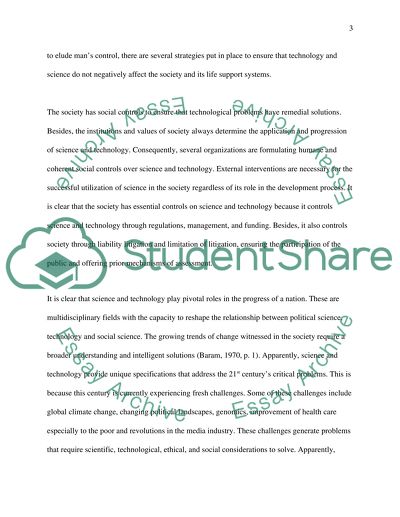Cite this document
(“Are science and technology spinning beyond social control and taking Essay - 1”, n.d.)
Retrieved de https://studentshare.org/sociology/1611133-are-science-and-technology-spinning-beyond-social-control-and-taking-on-a-life-of-their-own-give-examples-and-clear-reasons-for-your-answer
Retrieved de https://studentshare.org/sociology/1611133-are-science-and-technology-spinning-beyond-social-control-and-taking-on-a-life-of-their-own-give-examples-and-clear-reasons-for-your-answer
(Are Science and Technology Spinning Beyond Social Control and Taking Essay - 1)
https://studentshare.org/sociology/1611133-are-science-and-technology-spinning-beyond-social-control-and-taking-on-a-life-of-their-own-give-examples-and-clear-reasons-for-your-answer.
https://studentshare.org/sociology/1611133-are-science-and-technology-spinning-beyond-social-control-and-taking-on-a-life-of-their-own-give-examples-and-clear-reasons-for-your-answer.
“Are Science and Technology Spinning Beyond Social Control and Taking Essay - 1”, n.d. https://studentshare.org/sociology/1611133-are-science-and-technology-spinning-beyond-social-control-and-taking-on-a-life-of-their-own-give-examples-and-clear-reasons-for-your-answer.


